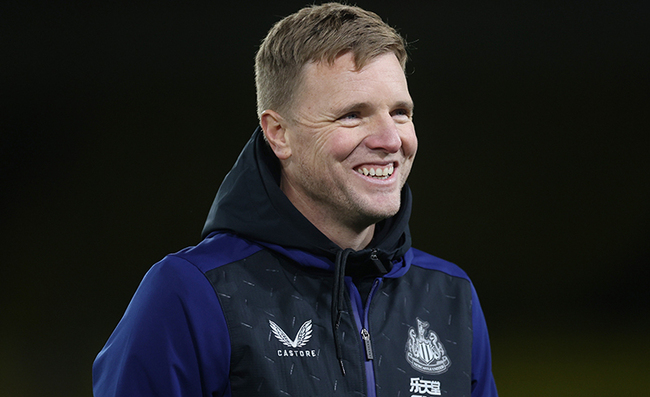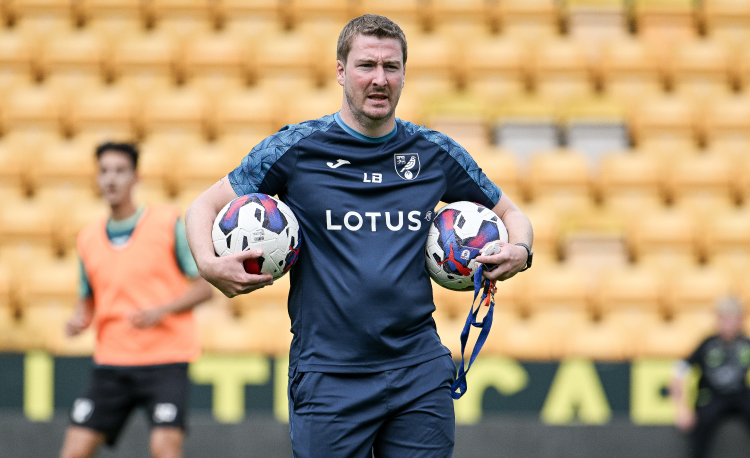You are viewing 1 of your 1 free articles
Developing a mental framework
Sport psychologist Dan Abrahams discusses the importance of giving players the final piece of the performance puzzle
“What are you trying to achieve mentally when you play?”
The response to this question tends to be the same – a blank look. An uncomfortable silence. An awkward moment.
It’s not like this all of the time, but it certainly happens most of the time. Most players I consult with don’t have a mental how-to guide for match day. They don’t have a mental framework that helps them manage the unhelpful and destructive thoughts, feelings, and emotions that can envelop their game.
Perhaps it’s because some players have so much skill in their feet that they feel they can get away with poor thinking. Or maybe it’s because some players consider themselves to be naturally mentally strong and are able to quell the negative emotions that emerge as they compete. The reality? It’s likely that everyone can improve the mental side of their game, and having been fortunate enough to work with some of the best, I’m a big believer that every player needs a mental framework to support their capacity to compete.
With this in mind, I’d like to ask you a question: does every player in your squad know how to find
their very best mindset come kick off? Does every player know what they’ve got to do to stay in their high performance mindset no matter the challenges that are thrown at them during the game?
If the answer is no, this may be an opportunity to add a piece to the performance puzzle.
POSITIVE MINDSET
A framework can be as simple as a couple of cue words to snap a player back into the present moment, or a technique like self-talk to manage negative thoughts and feelings that arise as the game unfolds. It can involve the use of body language and communication. It can incorporate physical triggers and instructional keys. It can utilise an attentional cue to help players scan the pitch better.
Whatever it looks like, the point is this – a mental framework helps a player take charge of him or herself on the pitch. It helps players take control of themselves. And having the ability to dominate one’s own mindset is vital for several reasons.
Firstly, because of the demands of the game. Football is a game of perceptual chaos. Player, ball and space are constantly changing – space emerging and dissolving; team mates and opposition players continually moving; the position of the ball rapidly shifting. As coaches we want players to be able to deal with these demands effectively, and we want them to do so while teaming with others, and leading others. We want them to display interpersonal skills with strong communication.
But this isn’t easy. Why?
Because whilst football works in seconds, the brain and nervous system work in milliseconds – they trump football for speed every single time. And as the brain marches to such a quick beat, it searches and scans for threats in its immediate vicinity, and within its immediate past, present and future. So the brain loves to bookmark failure – the mistake just made, we’ve gone a goal behind, the opposition are playing incredibly, the referee is having a shocker. The brain will happily shoot a sensation of anxiety or worry or doubt through a player’s body if it perceives the game is going really badly.
NEGATIVE EMOTION
A player engulfed in negative emotion or awash with unhelpful thoughts cannot deal with perceptual chaos, and cannot help his or her team mates as expected. A player drowning with uncertainty will struggle to control a ball with a deft touch, cannot pass with freedom, will likely play with tunnel-vision, may be slower to anticipate, and will tend to make poor decisions.
So take a little time to ask your players this: “What are you trying to achieve mentally when you go and play?” I wonder if they’ll be able to tell you exactly what it is they’re trying to accomplish. I’d put to you that if they can’t, you have a window of opportunity to help them put that right. You can help them develop a mental framework to their game. You can add another piece to that all important performance puzzle.
Editor's Picks
Using the goalkeeper in build-up play
Pressing principles
Intensive boxes drill with goals
Penetrating the final third
Creating and finishing
My philosophy
Pressing initiation
Compact team movement
Defensive organisation
Coaches' Testimonials

Alan Pardew

Arsène Wenger

Brendan Rodgers

Carlos Carvalhal

José Mourinho

Jürgen Klopp

Pep Guardiola

Roy Hodgson

Sir Alex Ferguson

Steven Gerrard
Related
Coaches' Testimonials

Gerald Kearney, Downtown Las Vegas Soccer Club

Paul Butler, Florida, USA

Rick Shields, Springboro, USA

Tony Green, Pierrefonds Titans, Quebec, Canada
Join the world's leading coaches and managers and discover for yourself one of the best kept secrets in coaching. No other training tool on the planet is written or read by the calibre of names you’ll find in Elite Soccer.
In a recent survey 92% of subscribers said Elite Soccer makes them more confident, 89% said it makes them a more effective coach and 91% said it makes them more inspired.
Get Monthly Inspiration
All the latest techniques and approaches
Since 2010 Elite Soccer has given subscribers exclusive insight into the training ground practices of the world’s best coaches. Published in partnership with the League Managers Association we have unparalleled access to the leading lights in the English leagues, as well as a host of international managers.
Elite Soccer exclusively features sessions written by the coaches themselves. There are no observed sessions and no sessions “in the style of”, just first-hand advice delivered direct to you from the coach.








